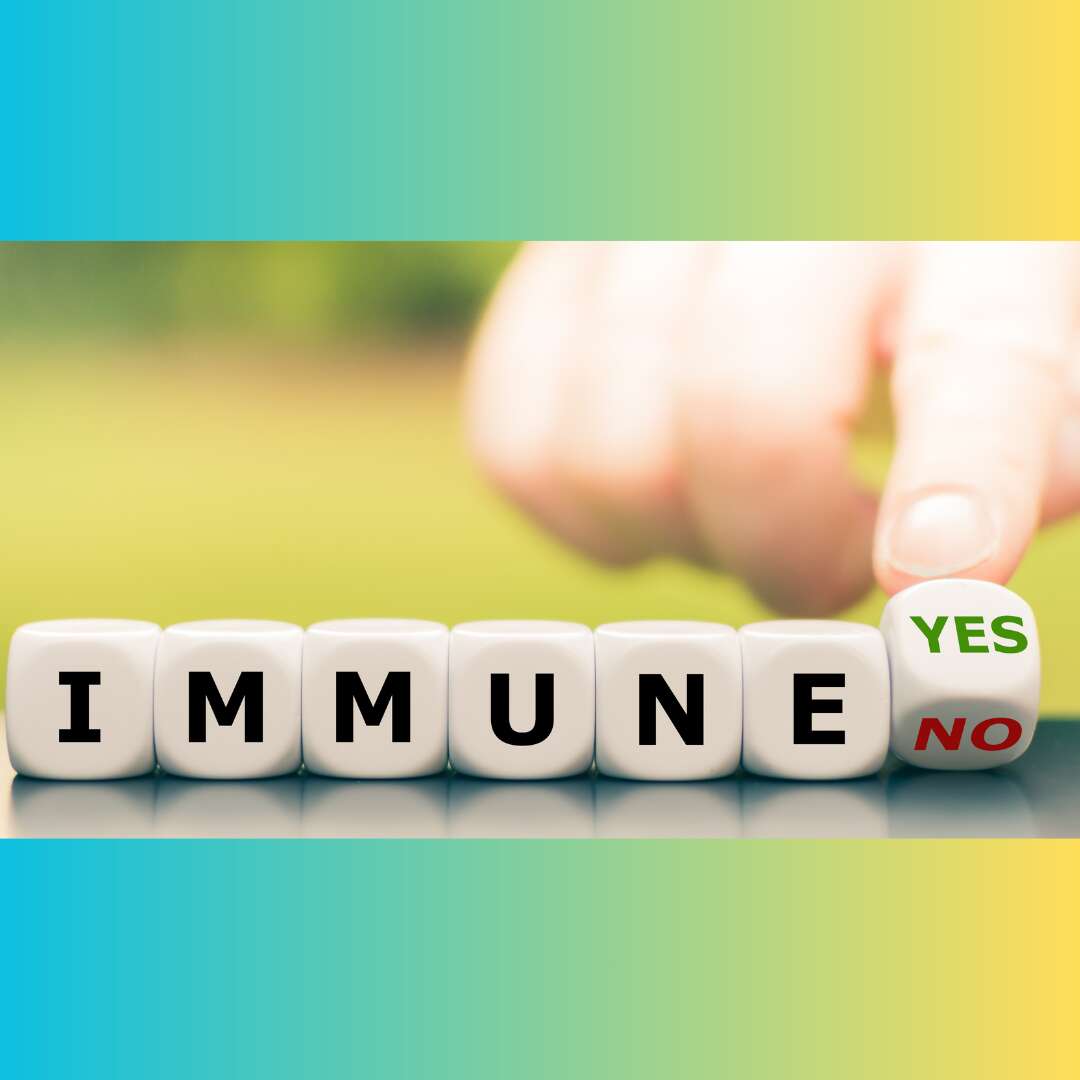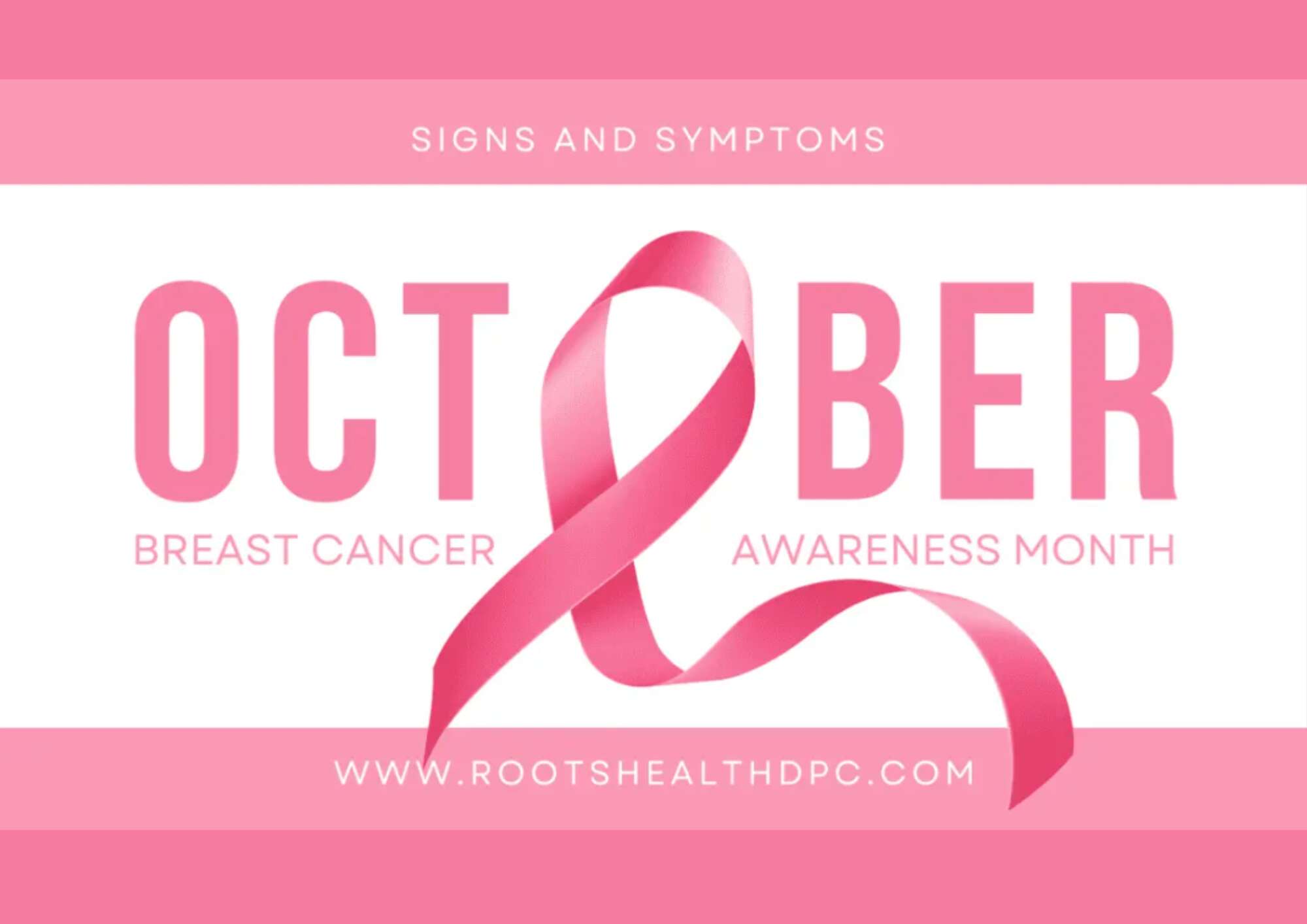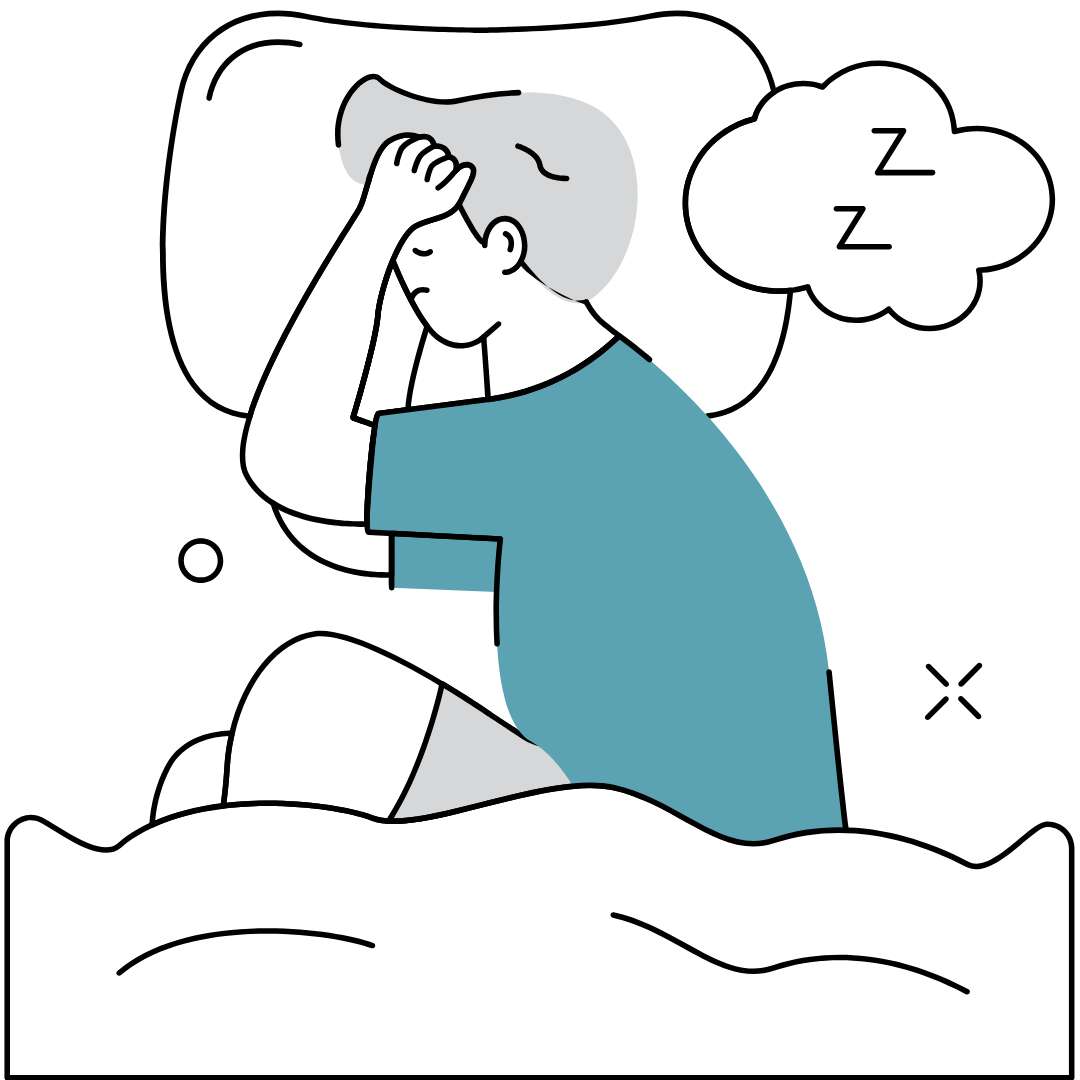Reset your health this 2026
Reset Your Health in 2026: A Doctor’s Guide to a Better Year, Not a Busier One
Most people begin January with a long list of resolutions.
Wake up earlier.
Eat cleaner.
Exercise more.
Sleep a little (or a lot) better.
Drink more water.
Stress less.
Be more patient, more present, more productive…
By February, the list often feels heavier than when you started.
If you’re reading this and thinking, “I’ve been here before,” you’re not alone.
What if the reason these goals feel exhausting isn’t because you lack discipline, but because the approach itself is backwards?
As a physician, I’ve watched something remarkable happen when patients shift from self-pressure to self-partnership. When they stop forcing themselves into a mold and start listening to what their body has been whispering all along.
Your health doesn’t need a stricter plan this year.
It needs a more aligned one.
Let’s hit reset—gently, intentionally, and in a way that actually works.
The Truth We Forget: Your Body Already Knows the Way
This might surprise you, but most of the transformation my patients experience doesn’t come from complicated protocols. It comes from awareness.
You get signals every day—subtle invitations toward balance. A nudges to slow down. A whisper that you’re overwhelmed. Maybe your body is asking for more sleep, food that actually fuels you, or five minutes of quiet before the day begins.
Most people override these messages because modern life rewards productivity over presence. But healing doesn’t come from intensity. It comes from tuning back into yourself.
And now is the perfect moment to practice listening again.
Start Here: A Simple New Year Audit
Instead of resolutions, try asking yourself three questions:
1. What feels heavy in my life right now?
Your health is often the first place that heaviness lands.
2. What feels out of alignment?
Your body will always show you where you’re pushing too hard.
3. What feels like it wants to change?
There is always a next right step—your own intuition is often the best compass.
These questions create clarity, which matters more than any habit tracker or color-coded calendar. Because clarity leads to action that actually sticks.
Your Health Won’t Change Until Your Stress Level Does
When I listen patients, one theme shows up over and over: “I’m doing so much… and I still don’t feel well.”
It’s not because you’re doing the wrong things.
Your nervous system wasn’t designed for chronic urgency. And no amount of supplements or meal plans can override a body stuck in constant stress mode.
This year, I want you to soften the pace. Not to be idle, but to create room for your system to regulate.
Healing needs space. Space creates clarity. Clarity makes change feel effortless instead of forced.
Three Anchors for a Healthier 2026
These aren’t resolutions—just invitations that help every system of your body function better.
1. Protect Your Sleep Like It Matters (Because It Does)
Before changing your diet or exercise routine, start here.
Good sleep stabilizes hormones, mood, appetite, immunity, and energy. It is the base of everything.
Ask yourself: What small shift would make sleep easier for me this year?
2. Choose Meals That Give You Something Back
Instead of chasing perfection or restriction, tune in.
How does your body feel after certain meals?
More energy? Less? Bloated? Satisfied? Foggy? Clear?
Your body isn’t trying to make you guess—it’s communicating in real time.
3. Build Micro-moments of Regulation into Your Day
Five minutes of breath work. Two minutes of stillness before the kids wake up. A quiet moment in the car before walking into work.
Your nervous system responds to consistency, not duration. These moments matter more than you realize.
Why Support Matters More Than Willpower
I can tell you confidently: The people who make the biggest health shifts are not the ones with the most discipline. They’re the ones who don’t try to do it alone.
When you have a doctor who actually knows you, who listens, who helps you make sense of your symptoms, who sees patterns and reflects them back to you—your goals stop being abstract ideas and start becoming lived reality.
Support is not a luxury. It’s a strategy. And it’s often the missing link.
This Year, Let Your Health Feel Easier
I don’t want you starting 2026 with a long list of things to fix. I want you starting with a deeper connection to yourself. More gentleness. More alignment. More trust in your own inner knowing.
When you shift the relationship you have with yourself, health changes naturally follow.
Your body isn’t asking you to work harder this year. It’s asking you to listen more deeply.
If You Want a Different Kind of Support This Year…
Roots Health DPC is built around the kind of care that actually creates change—slow enough to be thoughtful, personalized enough to be effective, and supportive enough to be sustainable.
If you want 2026 to be the year your health feels clear and aligned—
Your healthiest life is waiting — you just have to say yes.
Women’s Guide to Cervical Screening 2026
Cervical Health Awareness Month 2026: The Truth About Pap Smears, HPV, and Your Risk
What every woman should know—and why clarity should guide your care.
January is Cervical Health Awareness Month, and every year I see the same mix of emotions in my patients: confusion about guidelines, anxiety about HPV, uncertainty about screening intervals, and worry about what results actually mean. It’s understandable—women receive a flood of conflicting messages about cervical cancer prevention, and the traditional healthcare system rarely takes the time to explain any of it clearly.
But here’s the truth: Cervical cancer is one of the most preventable cancers.
And with the right information and regular screening, most women can feel empowered—not fearful—when it comes to their cervical health.
My hope for you this year is simple:
Replace confusion with clarity. Replace fear with knowledge. Replace overwhelm with a sense of grounded confidence in your wellbeing.
Let’s walk through what actually matters.
What Is the Cervix and Why Does Screening Matter?
Your cervix is the small, donut-shaped opening at the lower end of your uterus. Cervical cancer develops slowly—over years—and begins with subtle cellular changes detectable on routine screening.
This slow progression is what makes cervical cancer so preventable.
When we catch abnormal cells early, treatment is straightforward and highly effective. Cancer is PREVENTED.
When we don’t, small changes can evolve into something more serious.
Screening is not about scaring —it’s about staying a step ahead.
The Role of HPV: What You Really Need to Know
Most cervical changes are caused by HPV (human papillomavirus).
And here’s the part that most women have never been told clearly:
HPV is incredibly common—nearly everyone is exposed at some point.
This is not a sign that something is wrong. It’s not a judgment on your behavior. It’s not something to be embarrassed about.
HPV is a normal virus in the human population, and in the vast majority of cases, your immune system clears it naturally.
Only a small percentage of people develop persistent HPV, and an even smaller percentage develop precancerous changes.
Your body is wise. Your immune system is capable.
And most results are manageable with time and follow-up.
Understanding Screening: Pap, HPV Testing, and What’s Recommended in 2026
Screening guidelines have evolved—and it’s no wonder women feel confused. Here’s the simplified version:
Ages 21–29:
Pap smear every 3 years (assuming they are normal)
Ages 30–65:
One of the following for previously normal pap results:
- HPV test alone every 5 years
- Co-testing (Pap + HPV) every 5 years
- Pap smear alone every 3 years
If this feels complicated, don’t worry—what matters is that you’re screened regularly and your doctor explains it so that you understand what the results mean.
The real problem isn’t the guidelines; it’s the system that rushes women through visits without the time to explain them.
At Roots Health DPC, we slow down. We talk through your history, your risk, and your concerns.
You never walk out of an appointment unsure of what was done or why.
What Happens if Your Pap or HPV Test Is Abnormal?
Abnormal results for anything can be a little scary… but most of these represent low-grade, reversible changes that simply require follow-up.
Here’s the breakdown:
ASC-US or LSIL:
Usually mild changes. Often related to transient HPV. Often resolves on its own.
HPV positive:
Common. Not an emergency. Often cleared by your immune system.
HSIL or more advanced changes:
Needs closer follow-up, sometimes a colposcopy. Still highly treatable when caught early.
Abnormal does not mean cancer. It means we need to take next screening steps and support your body appropriately.
HPV Vaccination: Your Best Preventive Tool
The HPV vaccine is one of the most effective cancer-prevention tools ever created.
Who should get it?
- Recommended for ages 9–26
- Can be given up to age 45 for many adults
Vaccination + screening is the strongest combination to prevent cervical cancer.
How DPC Supports Better Women’s Health
Women’s health isn’t a checklist—it’s a conversation.
At Roots Health DPC, your cervical health screening includes:
✓ Unhurried visits
Time to ask questions, understand results, and talk through your concerns.
✓ Personalized recommendations
No guessing. No cookie-cutter screening schedules.
✓ Rapid follow-up when needed
No waiting months to be seen.
✓ A physician who knows your story
History matters. Patterns matter. Your lived experience matters.
✓ Affordable, transparent pricing
No surprise bills—ever.
This kind of care is what allows women to feel empowered, not overwhelmed. Your screening should never feel like an afterthought.
This Year, Choose Clarity Over Fear
If you’ve been putting off your Pap smear…
If you’re unsure about your HPV status…
If you’ve had abnormal results in the past…
If you’re not sure when your last screening was…
This is your gentle nudge toward clarity. Your body already knows how to move toward wellbeing.
Screening simply gives us the information to support you along the way.
If You Want Support With Your Cervical Health This Year…
If you want your women’s health to feel clear, grounded, and connected—not rushed or confusing—
Your healthiest life is waiting — you just have to say yes.
DPC doctor this 2026
New Year, New Doctor: How the Doctor–Patient Relationship Transforms Health in 2026
Why having a doctor who truly knows you is one of the most powerful investments you can make in your health.
As we step into a new year, many of us feel the familiar pull toward renewal—resetting routines, setting intentions, and choosing habits we hope will help us feel more energized, grounded, and healthy. But one area that often gets overlooked may actually be the most transformative of all:
Your relationship with your doctor.
In a world where healthcare has become rushed, transactional, and fragmented, the idea of having a physician who genuinely knows you—your history, your patterns, your stressors, your goals—feels almost radical. Yet this relationship is one of the most powerful tools we have in medicine.
Your health isn’t just about numbers on a lab report.
It’s shaped by your story, your lifestyle, your fears, your values… and the deeper truths your body is always trying to communicate.
When you have a doctor who sees the whole picture, things shift.
Your care becomes clearer.
Your decisions become easier.
Your healing becomes possible.
And that is the foundation of better health in 2026.
Why the Traditional System Makes It Hard to Truly Know Your Doctor
Most people today don’t have a “doctor”—they have a series of 7-minute visits with whoever is available. The average primary care physician manages 2,500–3,000 patients, leaving little room for connection, let alone true partnership.
This leads to predictable problems:
- You’re repeating your history over and over.
- You feel rushed or dismissed.
- Symptoms get treated in isolation instead of context.
- Preventive care falls through the cracks.
- You don’t feel safe asking questions or expressing concerns.
- Chronic issues linger because nobody has time to look deeper.
And over time, people start to believe their care has to be this way—fast, fragmented, and disconnected.
But it doesn’t.
In fact, healthcare works dramatically better when it’s rooted in relationship.
How a Strong Doctor–Patient Relationship Improves Health
There is decades of evidence supporting a truth most of us feel intuitively:
When you have a doctor who you trust, who listens, and who knows you as a whole person—your outcomes improve.
Here’s why:
1. You share more openly
Patients reveal more detail, more context, and more internal realities when they feel safe and known. That gives a physician better information—and better information leads to better care.
2. Subtle changes are noticed sooner
When I know your baseline—your stress levels, your sleep patterns, your normal energy—I can see deviations early. That’s where prevention actually happens.
3. Treatment plans become more aligned with your life
A plan only works if it fits who you are, how you live, and what you value. Relationship allows that personalization.
4. You feel supported, not alone
This may be the most powerful impact of all.
When you feel supported, your nervous system shifts.
You make clearer decisions.
You follow through.
You feel hopeful.
And health begins to change from the inside out.
Your body already knows how to move toward healing.
It just needs the right environment—including relational safety—to do it.
Why Direct Primary Care Strengthens This Relationship
Your doctor should have time for you.
Direct Primary Care (DPC) is built around one foundational idea:
Because time creates relationship.
And relationship creates better health.
At Roots Health DPC:
✓ I care for a fraction of the patients seen in traditional clinics.
That means more presence, more listening, and more continuity.
✓ Visits are unhurried.
You get time to talk, time to think, time to breathe.
✓ You have direct access.
Questions don’t wait for weeks. Care doesn’t get delayed.
✓ We look deeper—not just at symptoms, but at patterns.
Stress, sleep, hormones, nutrition, mental health…
Your whole-picture matters.
✓ Care feels personal because it is personal.
No assembly-line medicine.
No transactional encounters.
Just relationship-driven care the way medicine was always meant to be practiced.
This is the environment that allows health to actually transform.

Why 2026 Is the Right Time to Choose a Doctor Who Knows You
There is a growing desire—almost a cultural shift—toward lives that feel more aligned, intentional, and supported. People aren’t looking for more information; they’re longing for clarity. They’re not looking for more appointments; they’re longing for connection.
You don’t just want to be told what to do.
You want to understand your health.
You want to feel empowered.
You want a partner, not a gatekeeper.
As a physician, I see every day how profoundly this relational approach changes outcomes—especially for busy parents, stressed professionals, and women navigating shifting seasons of life.
And I believe 2026 is the year more people will say:
“I want healthcare that actually feels good. I want a doctor who knows me.”
Because when you stop outsourcing your wellbeing to a system that doesn’t serve you…
and instead choose care that aligns with the life you want to live…
health becomes less of a struggle and more of a natural expression of a grounded, supported life.
If You’re Ready for a Different Kind of Care This Year…
Roots Health DPC is currently operating with a waitlist.
If you’re feeling called into a new relationship with your health—one that feels supportive, connected, and aligned—this is your invitation.
Your healthiest life is waiting — you just have to say yes.
End of Year Wellness Guide for Families
Finishing the Season Strong. Start the New Year With Clarity — Not Burnout
You run a career, a household, and handle a calendar full of endless logistics.
You are the CEO of your family’s health and rhythm —And here’s the truth:
You don’t need more pressure, rules, or perfection to thrive right now. What will benefit you most going into the New Year is a clear plan that protects your energy and fills your cup.
This is your end-of-year playbook.
✅1. Choose YOU
Ask yourself these questions before committing your time and energy to a project.
Does this support my vision, goals and wellness? If not, its fine to say “No.” Remember that “No” is a complete sentence.
Your energy is a finite resource.
Spend it deliberately.
✅2. Protect Routines
You don’t need it to be perfect — but you need anchor habits that steady your body and mind.
What new habits are you cultivating in your daily routine? Stacking habits is one way we work with patients to help them reach their goals. From ensuring you get a full night sleep and changing snacking habits to increasing exercise and adding daily meditation to your routine… habit stacking goes a long way.
What are your goals for the New Year and how will you reach them?
Developing “High-yield” habits that protect mood, boost immunity, increase metabolism, and strengthen resilience support you in reaching your goals.
✅3. Build in Recovery Time — Not Just Activity
Executives schedule recovery cycles. Athletes schedule rest days. Families thrive when pauses are planned, not leftover.
Try to calendar: Recovery morning after big events, Downtime for unstructured family evening, laundry and rest day after big travel, or a “no committment” day between holidays.
Quiet space isn’t indulgence. It is intentional foundation for stability and clarity.
✅4. Hold Family Emotional Tone — Without Holding Every Emotion
As the family wellness leader, you influence the environment —
but you don’t need to absorb everyone’s stress or expectations.
Practice leadership-energy:
You model peace, presence, and emotional maturity — not overfunctioning.
✅4. Seed the New Year With Clarity — Not Pressure
You don’t need resolutions. You need new habits that point you in the direction of your goals.
End-of-year reflection prompts: What habits kept you well this year? What routines anchor you and your family? What supports would you like in place and where could you welcome those into your life? How can you adjust your routines to maximize your wellness in small manageable ways?
The goal: Start January with alignment and momentum.
✅5. DPC: Your Partner in a Strong Start
As your physician and wellness partner, DPC gives you:
✨ Accessible care and a Partner in Wellness
✨ Preventive Care and Accountability
✨ Mental health + Stress support
✨ Holistic, family-centered guidance
✨ Same-day access when you need it most
✨ No healthcare hassles taking up your bandwidth
Enter the new year with clarity, support, and confidence.
You don’t need to do it alone — you just need a system designed for working families.
You are the CEO of your family.
You are building a life.
You deserve structure and peace —
Finish this year the way you intend to live the next:
With clarity and peace of mind.
Holiday Stress Guide for Busy Families
Navigating Family Dynamics, Sharing the Load & Letting Go With Love — For a Calmer, Connected Season
The holidays can bring joy, nostalgia, and family connection — and also… expectations, opinions, overstimulation, and emotional landmines.
As a working mom, you already carry a lot: career deadlines, school logistics, household operations, childcare, meal planning, emotional support, and holiday magic-making.
Add extended family dynamics — in-laws, intergenerational traditions, different parenting philosophies, cultural expectations — and suddenly the season meant for connection can feel burdensome.
This year, let’s shift: from managing everything to creating intentional peace, partnership, and spaciousness to receive.
Prepare — Not Just Logistically
Choose to schedule activites that fill you up and matter most for your family.
Where can you choose simplicity? What can you Let Go of this year
This clarity anchors you.
Align With Your Partner (Before the Chaos Begins)
Healthy families run on teamwork — one person cannot work in a vaccuum and sometimes 2 people cannot even get it all done.
Try a 10-minute weekly holiday sync: to divide up responsbilities and ensure you are on the same page for events and logistics. This really does go a long way to avoid confusion and conflict later
Divide up tasks based on capacity & preference. Then — and this is the growth edge —release control of the how.If your partner wraps gifts differently, dresses the kids differently, or loads the dishwasher the “wrong way”… Let. It. Go.That’s love, partnership, and nervous-system peace.
Detach with love.Not controlling or correcting everything = freedom.
The Sandwich Generation Reality
Many moms are caring for kids — and aging parents — at the same time. It’s sacred, and it’s exhausting.
During gatherings: Lower your expectations so that you can enjoy what is and schedule breaks and step outside to breathe, stretch, reset.
When you stop showing up as the director, everything changes and you can take responsiblity for yourself.
Healthy Boundaries ARE LOVE in Action
Changing the way you approach your thinking about things and your responses to others… might look like:
- “We’re keeping things simple this year.”
- “We parent differently, and that’s okay.”
- “I love you and I am not available to have that conversation right now.”
Your tone can be soft. Your boundary can be firm.
Regulate Your Nervous System in the Moment
When emotions rise, choose presence over reaction:
- 4 slow breaths
- Name what’s happening: I feel overwhelmed, not wrong.
- Step outside for air
- Put a hand on your heart
Your peace is worth protecting.
You Don’t Have to Earn Rest
You don’t need to “deserve” rest. Everyone needs to take breaks. In fact, the breaks are what give us the energy to move forward more efficiently…
Schedule nourishing pauses like appointments:
- 🕯️ quiet coffee before everyone wakes
- 🧘♀️ gentle movement / yoga / tai chi
- 📚 20 minutes to read
- 🚶♀️ walk outside alone
- 💆♀️ an hour off-grid to breathe
Rest is not indulgence. Rest is necessary for effective leadership and good relations.
This season…………..
Connection — not control.
Presence — not perfection.
You are doing an amazing job.
Your family doesn’t need a perfect holiday —
they just need you, grounded and well.
Protect Your Energy This Holiday Season
Holiday Overload Reset: Time-Block Your Energy, Health & Peace This Season
The holidays bring joy…. and a calendar that fills faster than a Target cart on December 1st. School events, office deadlines, travel plans, teacher gifts, family dinners… Before you know it, the month is almost gone — and so is your energy.
For working moms, December can feel less like celebration and more like project management with glitter.
At Roots Health DPC, we don’t believe your health should take a holiday. So what is the goal? Not “surviving the season,” but being present for it with energy, calm, and intentional joy.
Let’s protect what matters most — your time, your wellness, and your peace.
✅ Time-Blocking: Your #1 Holiday Health Strategy
If it’s not on the calendar, it doesn’t happen. Especially during December.
Most Mom’s calendars include:
- School Events
- Kids’ sports & activities
- Work & meetings
- Travel
- Holiday social events
But many forget to schedule the things that keep them functioning.
So this holiday season, try blocking time for:
Recharge Rituals
- 10-minute guided meditation (morning is ideal to set stage for the day)
- A bath + audiobook (I like this at the end to unwind)
- Sitting with coffee in silence before kids wake
- A “nothing hour” on Sundays
Movement That Nourishes You
- Gym sessions
- Yoga or Pilates
- Lunchtime walk with sunlight
Self-Care Breaks
- Read a chapter of that book you were trying to finish
- Call a friend who fills your cup
- Journal gratitudes daily
- Tai Chi class, stretching, or breathwork
Put these in your calendar the same way you schedule all the other stuff on your calendar.
Self-care is not spontaneous. It’s intentional and scheduled.

✅ Set Your “Non-Negotiable” December Boundaries
Choose 2–3 personal health priorities and commit:
✔️ 7 hours of sleep minimum
✔️ Movement most days
✔️ Nutrition that fuels energy (add protein + greens before sugar)
✔️ No holiday decision-making after 8pm (decision fatigue sets in)
Boundaries protect your body and your bandwidth.
✅ “Energy Budget” to see what goes on the calendar
This season, ask:
➡️ Does this nourish me?
➡️ Does this align with our family values?
➡️ Is this a “should” or a “want”?
Give yourself permission to say: “We’re keeping this season simple.”
It’s not less festive. It’s more intentional.
✅ Why DPC Helps You Actually Stay Well During Busy Seasons
With a Direct Primary Care membership, health never drops to the bottom of the list:
✨ Same-day visits
✨ Easy text access
✨ Stress + sleep support
✨ Personalized supplement + preventive guidance
✨ Labs + check-ins without waiting months
No rushing. No reactive medicine.
Just a doctor who knows your family — and helps you stay well through the chaos.
This season isn’t about doing everything. It’s about protecting what matters: your energy, your health, your presence.
Because the best gift you can give your family is a healthy, rested, joyful you.
Family Sick-Season Survival Plan
Sick Season Survival Guide for Busy Families: Stay Healthy Without ER Visits, Endless Sick Days, or Panic
The holidays are magical—but let’s be honest: this is also prime sick-season.
Colds, flu, RSV, strep… suddenly every child, coworker, and playmate can be a risk fro germ exposure.
For working moms who are balancing meetings, meals, school drop-offs, and holiday events….one sick day can turn into a week of disruption. We know you don’t have time for that.
At Roots Health DPC, our goal is to help your family stay healthy and recover quickly, so you can enjoy the season (and show up at work without stress).
Let’s build your Sick-Season Survival Plan.
✅ 1. Prevention First: What Actually Works
Forget the TikTok immunity hacks. Evidence-based seasonal immunity support includes:
- Prioritizing 7+ hours of sleep
- Vitamin D + zinc (if appropriate; personalized dosing is ideal)
- Daily movement/exercise, even 10–15 minutes
- Keeping sugar + alcohol reasonable (immune-sparing)
- Hydrating like it’s your job
- Handwashing and hand sanitizer
- Saline nasal spray or rinse after flights/crowded events
💡 DPC Mom Tip: Make a family “night routine basket”: books, calming night light, humidifier nearby. Sleep is immune medicine.
✅ 2. When Illness Hits: Smart, Calm Response
Instead of using Dr Google or going to urgent care, use a plan:
- Reach out to Your DPC Doc
- Honey for cough (age > 1)
- Acetaminophen/ibuprofen rotation guidelines
- Humidifier + gentle steam
- Nasal saline + suction for young kids
And remember:
- Antibiotics don’t treat viruses…. but can give you diarrhea.
- Fever isn’t the enemy; dehydration is. Lots of fluids are key
💚 Bonus of DPC: Same-day access, texting your doctor, rapid testing, and guidance so you don’t waste hours in waiting rooms.
✅ 3. Know When to Seek Care
Call the doctor (or text, if you’re a DPC member) if there’s:
- Breathing difficulty
- Dehydration signs
- High fever > 72 hours
- Ear pain
- Lethargy or concerning symptoms
Instead of guessing and overusing urgent care, you get professional reassurance fast.
✅ 4. Working Mom Sick-Season Systems
Success doesn’t happen by chance — it happens by planning. Try these real-life systems:
- “Sick bin” ready to grab: thermometer, saline, honey, humidifier tabs, electrolyte packets
- Emergency freezer meals for low-energy days
- Car kit: tissues, wipes, extra water bottles, spare mask
- School note template saved in phone
- Backup childcare/partner “sick-day swap plan”
You don’t need to be superhuman — just prepared.
✅ 5. Why DPC Is a Working Mom’s Secret Weapon
Membership benefits that matter most in winter:
✨ Same-day/next-day visits
✨ Text your doctor for guidance
✨ Transparent pricing (no surprise bills)
✨ Avoid urgent care + long waits
✨ Whole-family preventive plan
✨ Partnership — not rushed “in-and-out” care
When your time is stretched thin and your family’s health is everything, having a direct line to your physician is the ultimate mom superpower.

This season, protect what matters most — your health, your energy, and your peace of mind.
You don’t need to juggle it all alone — we’ve got you.
Healthy Holiday Travel
Family Travel & Health — Smart Safety, Sleep, and Screening Tips
Health Doesn’t Take a Vacation
The holidays are around the corner—and so are the road trips, flights, and family visits that make this season special. But along with travel comes new germs, disrupted routines, and the inevitable fatigue that can throw your body off balance.
At Roots Health DPC, we believe staying healthy on the go is essential. Whether you’re flying cross-country or driving to Grandma’s house, here’s your trusted checklist for healthy holiday travel.
Plan Ahead—Your Pre-Travel Health Check
Healthy trips start before you pack your bags. A quick pre-travel check-in can prevent unwanted surprises.
Before you go:
- Schedule your annual physical if it’s due—especially for kids or older adults.
- Make sure vaccines are up to date (flu, tetanus, etc.).
- Refill any medications and pack an extra supply in case of delays.
- Ask your DPC doctor about travel-specific needs—like altitude sickness meds or motion sickness prevention.
💡 Doctor’s Tip: Pack medications and key documents (insurance card, ID, DPC contact info) in your carry-on—not checked luggage.
In-Transit Health Hacks
Travel often means tight schedules, irregular meals, and less sleep—but small habits can make a big difference.
For Flights & Long Drives:
- Stay hydrated (air travel dries you out faster than you think).
- Move or stretch every couple of hours to improve circulation.
- Sanitize high-touch surfaces like tray tables and seat belts.
- Pack healthy snacks (nuts, fruit, granola bars) to avoid sugar crashes.
For Families with Kids:
- Bring a comfort item or blanket to help them settle.
- Keep wipes, hand sanitizer, and a mini first-aid kit handy.
- Plan downtime after arrival—fatigue can make little ones more prone to illness.
Protect Your Sleep & Immune Rhythm
Time changes, jet lag, and unfamiliar environments can disrupt your sleep, which directly affects immunity.
Try these travel-doctor-approved tips:
- Stick to your usual bedtime routine as much as possible.
- Get morning sunlight to reset your circadian rhythm.
- Avoid caffeine after noon in the new time zone.
- Keep rooms dark and cool for better sleep.
Remember: Sleep is medicine. It helps your body recover, regulate stress hormones, and fend off infection.
DPC Makes Travel Health Simple
With a Direct Primary Care membership, your doctor is just a text or call away—no waiting rooms, no guessing games.
Even if you’re out of town, we can:
- Review symptoms virtually
- Advise on local urgent care or prescriptions
- Refill meds if you lose or run out during travel
- Provide peace of mind that you’re not alone on the road

Because good care travels with you.
Travel Confidently, Stay Healthy
This season, make your health part of the plan—not an afterthought.
With a little preparation… your holidays can be both joyful and healthy.
Book your complimentary meet-and-greet today to see how DPC keeps you covered year-round—wherever life takes you.
Calmer Holidays Ahead
Preparing for Holiday Stress — A Medical & Wellness Toolkit
The holidays are meant to be merry—but between the packed schedules, family dynamics, and endless to-do lists, many people end up feeling overwhelmed instead of uplifted.
From tension headaches to sleepless nights and fatigue, your body often tells the story of stress long before you do.
At Roots Health DPC, we know that managing holiday stress isn’t about doing less—it’s about doing what matters most for your health and well-being. Let’s walk through your medical and wellness toolkit for a calmer, healthier holiday season.
Recognize How Stress Shows Up in the Body
Stress isn’t “just in your head.” It can show up as:
- Tight shoulders or headaches
- Trouble falling or staying asleep
- Digestive changes
- Fatigue or brain fog
- Weakened immunity or more frequent colds
💡 Doctor’s Tip: If you find yourself feeling irritable, tense, or tired more often, your body may be asking for a pause—not just caffeine.
Build Your Holiday Wellness Toolkit
1. Prioritize Restful Sleep
Sleep is the single most powerful way to restore the nervous system.
- Set a consistent bedtime routine
- Avoid screens an hour before bed
- Try deep breathing or a short meditation
2. Keep Your Nutrition Grounded
Holiday meals are meant to be enjoyed—but skipping balanced meals or overdoing sugar can leave you drained.
- Eat protein and fiber before events
- Hydrate often (stress increases dehydration)
- Don’t skip breakfast
3. Move—Even Briefly
Exercise releases endorphins that help manage stress and improve mood. A 10-minute walk counts!
4. Mind Your Mind
Mindfulness, gratitude journaling, or even short breaks from social media can reset your mood and calm anxiety.

When Stress Becomes More Than Seasonal
Sometimes what feels like “holiday burnout” might be something deeper—such as anxiety, depression, or hormone imbalance.
As your DPC provider, we can help evaluate symptoms that persist beyond the season and create a personalized plan, from lab work to counseling referrals and lifestyle strategies.
Because at Roots Health DPC, we treat the whole person—not just the symptoms.
A Personalized Approach to a Peaceful Season
You don’t have to navigate the holidays on autopilot. With accessible, affordable, and personalized care, our DPC model helps you:
- Schedule same-day visits (even during the busy season)
- Address stress-related symptoms early
- Refill medications or review labs without the hassle
- Get support for both physical and emotional wellness
Your Season of Health Starts Here
This holiday season, give yourself the gift of calm.
Small, consistent steps—paired with a trusted care partner—make all the difference.
Book your complimentary meet-and-greet today and start your customized plan for a healthier, happier holiday season.
Winter-Ready Immunity
Immune Resilience — Getting a Head Start Before Flu Season
Don’t Wait Until You’re Sick to Strengthen Your Immune System
As the temperatures drop and holiday plans fill up your calendar, remember….it’s not just the season of giving—it’s also the season of sniffles, fatigue, and lingering colds.
But here’s the truth: your immune system isn’t just something you use after you get sick—it’s something you can strengthen right now.
At Roots Health DPC, we focus on prevention. By taking a proactive approach this fall, you can build immune resilience that helps your body respond, recover, and thrive all winter long.
What Is “Immune Resilience”?
Immune resilience is your body’s ability to stay balanced and bounce back from everyday stressors—whether it’s a busy work week, travel, or exposure to viruses.
It’s not about “boosting” your immune system with quick fixes. It’s about supporting it with the right foundations:
- Sleep: Quality rest helps regulate immune cells and inflammation.
- Nutrition: Whole foods rich in vitamin D, zinc, and antioxidants fuel your defenses.
- Movement: Regular activity improves circulation and immune response.
- Stress Management: Chronic stress weakens immunity, so relaxation isn’t a luxury—it’s medicine.
💡 Doctor’s Tip: Even small daily habits—like a brisk 20-minute walk, 7+ hours of sleep, and staying hydrated—go a long way in strengthening your immune system.
Preventive Checkpoints Before Winter
Now is the perfect time to get ahead on your annual health to-do list. A few simple steps can make a big difference:
- Schedule your annual physical and review labs (vitamin D, blood sugar, thyroid).
- Stay current on vaccines, including your flu shot.
- Check for conditions like diabetes, hypertension, or anemia, which can reduce immune strength.
At Roots Health DPC, members enjoy easy scheduling, same-day or next-day appointments, and transparent pricing—so preventive care stays simple and affordable.
Immune Support—Without the Hype
With so much information presented… from social media trends to overflowing supplement aisles, “immune boosters” can get confusing.
The good news: you can be well. Stick with evidence-based support like:
- Vitamin D (especially during shorter daylight months)
- Probiotics for gut health
- Elderberry and zinc (when used appropriately)
For personalized supplement guidance, talk with your DPC doctor—because what works best depends on you.

Proactive Care Starts Here
This fall, let’s shift from reactive to resilient. Your immune system thrives on consistency, connection, and care that’s built around you.
Book your complimentary meet-and-greet today and create a personalized immune plan that keeps you and your family healthy all season long.
What is Direct Primary Care?
What Is Direct Primary Care (DPC)?
A Simpler Way to Get the Healthcare You Deserve
Have you ever left a doctor’s appointment feeling rushed, confused about your bill, or frustrated that you didn’t get the care you really needed? If so, you’re not alone. Many families and small business owners feel trapped in a healthcare system that is expensive, impersonal, and hard to navigate.
That’s where Direct Primary Care (DPC) comes in—a simpler, more affordable, and more personal way to get the healthcare you deserve.
So, what exactly is DPC?
At its core, DPC is membership-based primary care. Instead of paying per visit or going through complicated insurance billing, you pay a flat monthly fee (at Roots Health DPC, that’s $78–$98 per adult and $36 per child). That monthly membership gives you unlimited access to your doctor—in person, by phone, or even text.
No copays. No surprise bills. No long waits.
What’s included in DPC?
-
Unlimited visits (no rushing through appointments)
-
Same-day or next-day appointments
-
Extended time with your doctor (30–60 minutes, not 7–10)
-
Preventive care and chronic disease management
-
Discounted labs, medications, and imaging (often cheaper than insurance copays)
-
Direct access to your doctor by phone, text, or email
Think of it like having a trusted doctor on speed dial—someone who knows you, your family, and your health history.
Why do families and small businesses love DPC?
-
Families: Parents love knowing their kids can see a doctor quickly without a giant bill.
-
Small businesses: Owners save money while still offering employees real access to healthcare.
-
Busy professionals: No time wasted in waiting rooms; care happens when it’s needed.

Is DPC insurance?
No—it’s better. Insurance is still important for emergencies, specialists, or hospital stays. But for everyday healthcare needs (about 80–90% of care people use), DPC is the smarter, more affordable option.
The Roots Health DPC Difference
-
Affordable membership pricing
-
Direct access to their doctor
-
A personalized plan that fits their health goals
Healthcare shouldn’t feel like a battle. With DPC, it doesn’t.
Don’t Skip These Screenings
Health Screenings You Shouldn’t Skip in Your 40s and 50s
Turning 40 or 50 often feels like a milestone—and it’s also the perfect time to prioritize preventive health. Regular screenings can detect problems early, when they’re most treatable, and keep you on track for a healthier future.
Here’s a practical checklist of the screenings you shouldn’t skip:
✅ Blood Pressure & Cholesterol
- Why it matters: High blood pressure and cholesterol often have no symptoms but raise your risk for heart disease and stroke.
- When: At least every 1–2 years—or more often if you have risk factors.
✅ Blood Sugar / Diabetes Screening
- Why it matters: Type 2 diabetes is increasingly common in midlife, and catching it early can prevent serious complications.
- When: Starting at age 45, or earlier if you’re overweight or have family history.
✅ Cancer Screenings
- Breast Cancer: Mammograms are recommended for women starting at 40–50, depending on risk factors.
- Colon Cancer: Colonoscopy or stool-based screening should begin at 45.
- Prostate Cancer: Men should discuss PSA testing with their doctor around age 50, or earlier with risk factors.
- Skin Cancer: Regular skin checks for unusual moles or lesions are important at any age.
✅ Bone Density Test (DEXA Scan)
- Why it matters: Osteoporosis risk increases with age, especially for women after menopause.
- When: Women over 65 and men over 70 should be screened—but your doctor may recommend earlier if you have risk factors.
✅ Vision & Hearing Checks
- Why it matters: Subtle changes in vision and hearing can impact daily life and safety, yet often go unnoticed.
- When: Eye exams every 2 years; hearing checks if you notice changes.
✅ Immunizations
- Why it matters: Protection against illness doesn’t stop at childhood. Staying up to date reduces serious risks.
- Key vaccines: Shingles (age 50+), annual flu shot, Tdap booster, and COVID-19 vaccines/boosters as recommended.
Why This Matters More in Your 40s & 50s
These decades are often the “sandwich years”—balancing careers, families, and aging parents. It’s easy to put your health last. But screenings are one of the most powerful ways to stay healthy, independent, and present for the people who count on you.
Your Partner in Prevention
At Roots Health DPC, we take the guesswork out of prevention. Together, we’ll create a personalized screening plan based on your history, lifestyle, and risks. With direct access to your doctor, longer visits, and ongoing support, you’ll never feel rushed or overlooked.
Let’s make sure you’re up to date with the screenings that protect your future health.
Because prevention isn’t just medicine—it’s peace of mind.
Breast Cancer Awareness Month
October is Breast Cancer Awareness Month: Putting Prevention First
At Roots Health Direct Primary Care, we believe awareness is only the first step—prevention and early detection are where lives are saved.
Breast cancer affects 1 in 8 women during their lifetime, but the good news is that when caught early, survival rates are much higher. That’s why October is the perfect time to pause, reflect, and make your health a priority.
Beyond Awareness: Taking Action
Knowing your risk and creating a personalized screening plan matters more than ever. Family history, lifestyle, and breast density all influence the best screening strategy for you.
- Mammograms remain the gold standard for early detection.
- Ultrasound and MRI may be recommended for women with dense breast tissue or higher risk factors.
- Self-awareness—regularly checking your breasts and reporting changes—empowers you to partner with your doctor in prevention.
At Roots Health DPC, we don’t believe in one-size-fits-all care. Instead, we take time to listen, assess your individual risks, and guide you to the screening plan that’s right for you.
Warning Signs to Watch For
While screening is key, being alert to changes matters too. Contact your doctor right away if you notice:
- A lump or thickened area in your breast or underarm
- Skin dimpling, redness, or swelling
- Nipple changes, including inversion or discharge
- Unexplained changes in breast size or shape
Most changes are not cancer—but they are worth checking promptly.
Why Roots Health DPC is Different
When questions or concerns arise, you don’t need to wait weeks for an appointment or feel rushed through a system that doesn’t have time for you. Our patients have direct access, same-day visits, and ongoing support—because your health deserves more than a quick check-box approach.
Because at Roots Health DPC, you’re not just another patient—you’re a partner in care.
Open Enrollment
A Smarter Way to Protect Your Family This Open Enrollment: More Care, Less Cost
Every year, healthcare premiums rise while coverage seems to shrink. Families are paying more, small businesses feel squeezed, and many people avoid care because of surprise bills or endless insurance hurdles.
But this year’s Open Enrollment brings good news — and a chance to break the cycle.
What’s New This Year?
- ✅ HSAs Can Now Cover DPC MembershipsThanks to recent law changes, you can now use your Health Savings Account (HSA) to pay for Direct Primary Care memberships — tax-free. That means predictable care at transparent prices, without losing HSA benefits.
- ✅ Catastrophic Plans ExpandedAs of November 1, 2025, more people are eligible for low-premium catastrophic health plans. These plans cover worst-case scenarios while keeping monthly costs down.
- ✅ Catastrophic + Bronze Plans Now HSA-CompatibleCertain catastrophic and Bronze high-deductible health plans are now recognized as HSA-eligible, giving families and small business owners even more flexibility to pair affordable coverage with DPC.
Why Pairing DPC With a Catastrophic Plan is a GAME CHANGER.
At Roots Health DPC, we offer membership care that makes sense for families and entrepreneurs alike:
- Adults: $78–$98/month
- Kids: $36/month
- Labs: under $30 (often less than a typical copay)
- X-rays: $60
- MRIs: from $250
- Medications: often cheaper than insurance copays
That means you can lower your monthly premium costs with a catastrophic plan — and still enjoy unlimited access to your physician, no copays, no surprise bills, and transparent pricing for everything else.

Who Benefits Most?
- Individuals & Families: Convenient care without hassle. No avoiding visits because of surprise costs.
- Small Business Owners: Affordable health options for yourself and employees.
- Solopreneurs: Reliable, personal care with catastrophic coverage for peace of mind.
Take Action Before Open Enrollment Ends
Open Enrollment is your chance to stop overpaying and finally choose care that works for your family and your budget.
Don’t wait — enrollment deadlines come fast. This year, you have more choices. Let’s make them count.
Ovarian Cancer
Understanding Ovarian Cancer: What Every Woman Should Know
September is Ovarian Cancer Awareness Month, a time to shed light on this often-overlooked disease. Ovarian cancer is the fifth leading cause of cancer-related deaths among women in the United States. Unfortunately, due to the lack of a reliable early detection test and the subtlety of its symptoms, it is often diagnosed at an advanced stage.
Recognizing the Symptoms
The symptoms of ovarian cancer can be vague and easily mistaken for other conditions. However, persistent symptoms that last for more than a few weeks should not be ignored. Common signs include:
- Abdominal bloating or swelling
- Quickly feeling full when eating
- Pelvic or abdominal pain
- Frequent urination
- Unexplained weight loss
- Fatigue
If you experience any of these symptoms, especially if they are new or unusual for you, it’s important to consult with a healthcare provider promptly.

Understanding the Risk Factors
While ovarian cancer can occur in any woman, certain factors may increase the risk:
- Age: Most cases occur in women over the age of 50.
- Family history: A family history of ovarian, breast, or colorectal cancer may increase risk.
- Inherited gene mutations: BRCA1 and BRCA2 gene mutations significantly raise the risk.
- Hormonal factors: Use of hormone replacement therapy may influence risk.
Importance of Early Detection
Early detection of ovarian cancer can significantly improve treatment outcomes. While there is no standard screening test for ovarian cancer, determining your risk and discussing with your physician as well as staying vigilant about any unusual symptoms can aid in early detection.
At Roots Health DPC, we are committed to your health and well-being. If you have concerns about ovarian cancer or any other health issues, don’t hesitate to reach out. We offer complimentary consultations to discuss your health and any questions you may have.
Menopause
Navigating Menopause: Symptoms You Might Not Expect—and How to Manage Them
Menopause is more than hot flashes and night sweats. For many women, the transition brings a variety of symptoms that can affect daily life, from sleep disruption and fatigue to mood changes and joint aches. Recognizing what’s normal—and knowing how to manage it—can make this stage of life far more comfortable.
Common Menopause Symptoms
While each woman’s experience is unique, here are some of the issues frequently seen during perimenopause and menopause:
- Sleep Disruption: Trouble falling or staying asleep is common. Poor sleep can contribute to fatigue, irritability, and difficulty concentrating.
- Fatigue: Hormone fluctuations, sleep disturbances, and lifestyle factors can all contribute to feeling run-down.
- Mood Changes: Anxiety, irritability, or low mood can emerge, sometimes overlapping with other life stressors.
- Joint and Muscle Aches: Declining estrogen can increase inflammation and reduce natural lubrication, leading to stiffness or pain.
- Heart Palpitations: Short episodes of a racing or fluttering heart may occur, often linked to hot flashes.
- Weight and Body Composition Changes: Many women notice increased abdominal fat and decreased muscle mass during menopause.
- Sexual Health Changes: Decreased estrogen can cause vaginal dryness, discomfort during intercourse, and changes in libido.
- Urinary or Bladder Changes: Weakened pelvic floor muscles may lead to urgency, incontinence, or recurrent UTIs.
- Neurological Changes: “Brain fog,” difficulty focusing, or memory lapses are common during hormone fluctuations.
- Skin, Hair, and Nail Changes: Thinning hair, brittle nails, and drier skin can result from declining estrogen levels.

What You Can Do to Feel Your Best
While menopause can be challenging, there are practical steps you can take to manage symptoms:
- Prioritize Sleep: Maintain a consistent bedtime, create a relaxing nighttime routine, and limit caffeine or electronics before bed.
- Stay Active: Regular exercise supports heart health, helps manage weight, and reduces joint stiffness.
- Eat for Hormone Balance: Focus on whole foods, fiber, lean protein, and healthy fats to support overall health.
- Mind Your Mental Health: Mindfulness, meditation, or therapy can help manage mood swings and anxiety.
- Pelvic Floor Care: Strengthening exercises can reduce urinary symptoms and improve sexual comfort.
- Consider Medical Options: Hormone therapy, non-hormonal medications, or supplements may be appropriate based on your individual needs—always under medical guidance.
Don’t Navigate Menopause Alone
Every woman’s experience is different, and there’s no one-size-fits-all solution. At Roots Health DPC, we take the time to listen, understand your symptoms, and collaborate with you on a personalized plan—so you can feel like yourself again.
Atrial Fibrillation (AFib) Awareness Month
September Is AFib Awareness Month: Know the Signs, Protect Your Heart
September is Atrial Fibrillation (AFib) Awareness Month, a time to shine a spotlight on one of the most common heart rhythm disorders. AFib affects millions of people, often without obvious symptoms, yet it can significantly increase your risk of stroke and other heart complications.
What Is AFib?
Atrial fibrillation is an irregular heartbeat. Instead of a steady, regular rhythm, the heart may beat too fast, too slow, or erratically. While some people notice palpitations, dizziness, or fatigue, others may have no symptoms at all—making regular screening especially important.
Common Signs and Symptoms
-
Irregular or rapid heartbeat
-
Palpitations (“fluttering” in the chest)
-
Shortness of breath
-
Fatigue or weakness
-
Lightheadedness or dizziness
-
Chest discomfort
If you experience any of these, it’s important to talk to your physician. Early detection can prevent serious complications, including stroke or heart failure.
Why Screening Matters
AFib often goes undiagnosed until a serious event occurs. A simple heart rhythm evaluation—like an ECG or wearable heart monitor—can detect irregularities early. Knowing your risk and catching AFib early allows for effective management and treatment, keeping your heart healthier for the long term.

How Roots Health DPC Can Help
-
Review your heart health and risk factors
-
Offer individualized screenings for AFib and other cardiac conditions
-
Create personalized plans to manage and reduce risk
-
Provide ongoing support so you never have to navigate your health alone
Take Action This September
Don’t wait for symptoms to disrupt your life. Early detection of AFib can make all the difference in preventing complications.
Unseen Summer Pests
Cicada Mites: My Unexpected Summer Surprise
Late summer in my garden should have been relaxing. I was enjoying the sunshine, tending to my plants, and listening to the soft hum of summer insects. But the next morning, I noticed itchy red bumps spreading across my arms. At first, I thought it might be an allergic reaction to something I touched—but soon I realized this itchy rash was from something different: cicada mites.
What Are Cicada Mites?
Cicada mites (Pyemotes herfsi) are tiny, nearly invisible pests that usually feed on cicada eggs and other insects. During cicada emergences, they can bite humans, causing intense itching and small, red, raised bumps. The effect can be similar to an allergic reaction localized.

Symptoms You Might Notice
Cicada mite bites/burrowing can cause:
- Intense itching—sometimes hours after exposure
- Red, raised bumps or welts, often on exposed skin
- Localized rash, commonly on the arms, neck, and upper torso
- Occasional secondary infection if bites are scratched repeatedly
For me, the itching was relentless and the lesions actually became “weepy.”
How I Managed It
I found relief through:
- Topical steroid creams to calm inflammation
- Oral antihistamines to control itching
- Calamine lotion for soothing relief
- COLD ice applied to soothe worked well
I also learned a few prevention tips to avoid future issues:
- Avoid spending time near oak trees during peak cicada activity
- Wear long sleeves and pants when gardening
- Shower soon after outdoor activities to remove any mites on the skin
When to Seek Help
While cicada mite bites are usually harmless, severe reactions, widespread rashes, or persistent symptoms warrant a medical check-up. At Roots Health DPC, we provide personalized guidance to help you manage reactions, prevent complications, and get back to enjoying your summer.
HDL vs. LDL
September Is National Cholesterol Education Month: What You Need to Know
When was the last time you checked your cholesterol? If it’s been a while—or if you’ve never known your numbers—September is the perfect time to start.
High cholesterol often has no symptoms, yet it plays a major role in heart disease, stroke, and other serious health conditions. The good news? By understanding your cholesterol levels and taking steps to manage them, you can significantly improve your long-term health.
What Is Cholesterol?
-
LDL (Low-Density Lipoprotein): Often called “bad cholesterol” because high levels can build up in your arteries.
-
HDL (High-Density Lipoprotein): Known as “good cholesterol” because it helps clear LDL from the bloodstream.
The key is balance. Too much LDL or too little HDL increases your risk of heart problems.
Why It Matters
When cholesterol levels are off, plaque can build up in your arteries. Over time, this raises your risk of heart attack, stroke, and other cardiovascular diseases. Since high cholesterol doesn’t cause obvious symptoms, the only way to know your levels is through a blood test.
Why It Matters
When cholesterol levels are off, plaque can build up in your arteries. Over time, this raises your risk of heart attack, stroke, and other cardiovascular diseases. Since high cholesterol doesn’t cause obvious symptoms, the only way to know your levels is through a blood test.
How Roots Health DPC Can Help
-
Personalized Screenings – More than just a number, we look at your overall risk profile.
-
Custom Plans – Tailored lifestyle recommendations, nutrition guidance, and—if needed—medications or supplements.
-
Ongoing Support – Regular follow-ups to keep you on track and adjust your plan as your needs change.
Take Charge of Your Heart Health This Month
Don’t wait for a problem to appear—prevention is powerful. By checking your cholesterol now, you’re taking a proactive step toward protecting your heart for years to come.

Sleep Apnea
Sleep Apnea: Don’t Ignore the Signs
Do you wake up tired, struggle to concentrate during the day, or battle frequent headaches? These could be more than signs of a busy lifestyle—they may be symptoms of sleep apnea.
Sleep apnea is one of the most common yet underdiagnosed sleep disorders. Left untreated, it can take a serious toll on your health, from chronic fatigue and mood changes to increased risks of heart disease, diabetes, and even stroke. Recognizing the symptoms early is the first step toward better health.
Common Symptoms of Sleep Apnea
Snoring is the symptom most people associate with sleep apnea, but it’s far from the only one. Signs of obstructive sleep apnea (OSA) can include:
- Loud snoring, often noticed by a partner
- Daytime sleepiness or fatigue, no matter how much you sleep
- Restless or fragmented sleep
- Sudden awakenings with a choking or gasping feeling
- Morning headaches
- Trouble concentrating, forgetfulness, or irritability
- Night sweats or frequent trips to the bathroom at night
- Mood changes, sometimes mistaken for anxiety or depression
- Sexual dysfunction
If several of these sound familiar, it’s worth talking to a doctor—because sleep apnea doesn’t get better on its own.
How is sleep apnea diagnosed?
The only way to know for sure is through a sleep study, which monitors your breathing and oxygen levels overnight. Your physician can help determine whether this is necessary and guide you through the process.
Treatment Options
The good news: sleep apnea is treatable, and your plan can be tailored to your needs. Depending on the underlying cause, options may include:
- Weight loss and lifestyle changes
- Adjusting sleep position
- Treating nasal or sinus issues
- CPAP (continuous positive airway pressure) therapy
- Dental devices that help keep the airway open
- Surgery, in more severe cases
The right treatment can be life-changing—improving energy, mood, focus, and long-term health.

Don’t Overlook the Signs
Too often, people dismiss fatigue or poor sleep as “normal.” But if you’re struggling with any of the symptoms above, don’t wait. Early screening and treatment can prevent serious health problems down the road.
Schedule your free initial consultation today and take the first step toward better sleep and better health.





















